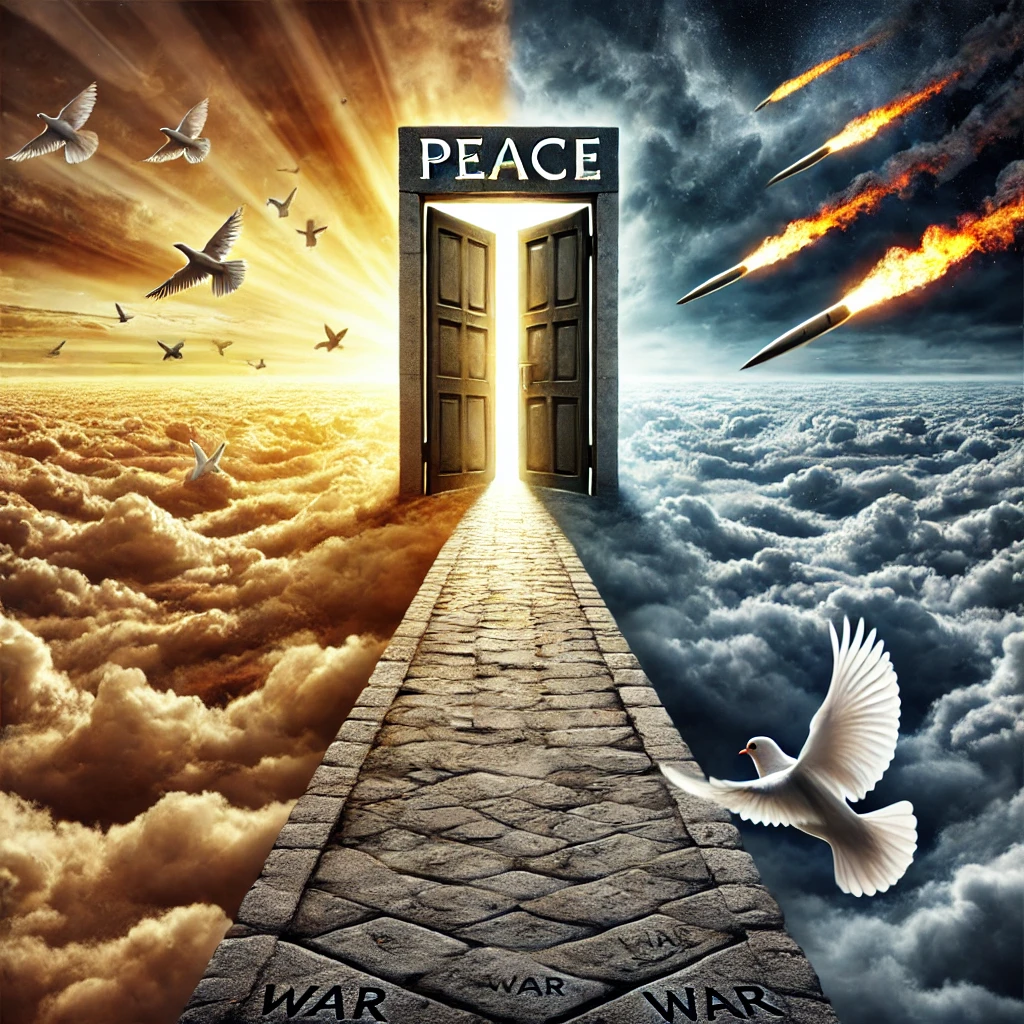“Even on the path to peace, the last door is war.”
We speak of peace as the ultimate goal — something every nation claims to want, every leader promises to pursue, and every protestor demands. Yet, time and again, when negotiations fail, patience runs thin, or interests clash, that path to peace always seems to end at the same door: war.
The Paradox of Peace Through War
History is filled with leaders who waged war in the name of peace.
They declared battle to “end all battles,” to “restore balance,” or to “protect freedom.”
And sometimes, those wars did bring an end — but often at a cost that peace alone could never justify.
Examples from History:
- World War II was fought to stop tyranny and genocide. The world said it was necessary. But over 70 million people died.
Peace came — but only after firestorms, nuclear bombs, and mass destruction.
- The Vietnam War and Iraq War were presented as missions to secure freedom or restore peace. Yet decades later, the regions still struggle with instability, and the human toll remains unimaginable.
- In modern times, conflicts in Gaza, Ukraine, Syria, and Sudan continue under the same narrative: fighting for peace, justice, security.
But the question remains: Is peace truly the goal, or just the excuse?
Why Does Peace Require a War Passport?
The answer may lie in human nature — and in the systems we’ve built:
- Ego over empathy: Leaders often choose to prove power instead of choosing diplomacy.
- Profit over people: War economies benefit a few, even while millions suffer.
- Fear over faith: Nations don’t trust one another enough to be vulnerable, so they choose to attack first and talk later.
In a world with nuclear weapons, AI-driven drones, and global surveillance — war is no longer the last resort. It’s often the first reaction when peace demands too much effort or patience.
The Final Door Doesn’t Have to Be War
If war is the last door, it’s because we’ve built our houses that way.
What if we started restructuring the architecture of diplomacy?
What if we invested more in education, empathy, and justice — the true foundations of peace?
What if we no longer saw war as a necessary evil… but as a failure of imagination?
Final Thought
“Even on the path to peace, the last door is war.”
But maybe it’s time we redesign that path.
Add more doors.
Make room for courage, humility, and listening.
So that when we finally reach the end —
We don’t have to open war to find peace.

